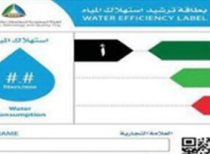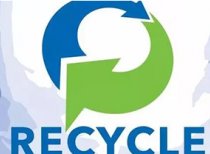Authentication serviceProduct
Where you are at the moment:Home > Authentication serviceKUCAS certification is a kind of certification in Kuwait. Kuwait informed the TBT Committee on 17 December 2006 of its intention to implement the new Kuwaiti Local Qualification Assurance System (KUCAS) in place of the current International Qualification Certification Programme (ICCP). Taking into account the acceptance of the valuable comments of members of the TBT Committee on the KUCAS Guidelines, Kuwait hereby informs the TBT Committee that, in accordance with the dates indicated in Items 9 and 10 of the present bulletin, the period for submitting comments is extended and the implementation of KUCAS is postponed, so as to allow sufficient time to study the various comments and to consider revising the Guidelines accordingly as much as possible.
Certification profile
Kuwait's National Industrial Authority (PAI) issued its circular G/TBT/N/KWT/7 on 21 December 2005. The title is Kuwait Qualification Assurance Scheme (KUCAS) and the new Kuwait Local Qualification Assurance Scheme (KUCAS), which will replace the current International Qualification Certification Scheme (ICCP).
The outline provides for conformity assessment procedures to be undertaken by importers when goods arrive at Kuwaiti ports, rather than exporters or manufacturers from various exporting countries, such as ICCP. It is valid for one year under the approval of the pre-market "technical assessment" system for non-processed manufactured products (such as electrical appliances and tyres). It is recognized as a guarantee basis for the "technical assessment certificate" by the self-declaration of importers supported by inspection reports or quality marks issued by any laboratory, certification or notification body, whether in Kuwait or in any other country. Sampling and testing of processed products (such as oil, paint and cement) after arrival at Kuwaiti ports and at PAI laboratories, or at specialized laboratories in other neighbouring countries where necessary; selective inspection and delivery of goods at Kuwaiti ports based on risk analysis and past importer or manufacturer compliance records; identical without Kuwaiti quality markers Control domestic producers of products, implement similar systems, and initiate local market surveillance programs. The proposed approval date and effective date of the QA plan are March 17, 2006.
plan
1) All specified products must conform to Kuwait's national technical regulations or relevant international standards;
2) ICCP Certificate (CC) must be held with the goods for clearance of a specified batch of products.
3) When arriving at the port of entry of the importing country, the goods without CC certificate may be refused or required to be sampled for testing. If it fails to meet the requirements of the importing country, it will be ordered to return to the port of shipment, resulting in unnecessary delays and losses for the exporter or manufacturer.
ICCP provides three ways for exporters or manufacturers to obtain CC certificates. Customers can choose the most appropriate way according to the nature of their products, the degree of compliance with standards, and the frequency of shipments. CC certificates are issued by PAI Country Office (PCO) authorized by Kuwait.
If it meets the ICCP certification plan, there are three forms as follows:
1) Pre-shipment Inspection (PSI) and Pre-shipment Testing (PST).
Application for customs clearance and inspection fee: if FOB amount is less than or equal to USD 200,000: fee = 0.45%*FOB amount (minimum: CHY 1,750), if FOB amount is between USD 200,000 and USD 1 million: fee = USD 900+ (FOB-200,000 USD) 0.3%, if FOB amount exceeds USD 1 million.
2) Registration and pre-shipment inspection:
Cost: 150+30/model. Ibid.
Certified Product Scope
There are seven categories of products stipulated
1. Toys
2. Household category
3. Commercial Category
4. Automobile
5. Chemicals
6. Building Materials
7. Other Categories
Certification requirements
1. Rated voltage: The rated voltage of 240V can be marked as 220V-240V, 230V, 230V-240V and 240V. Electrical products with rated voltage of 220 V shall not enter Kuwait
2. Frequency: 50Hz
3. Plug chargers should meet BS1363-1, BS1363-2 or BS546 standards. Plugs for electrical wiring must conform to the above standards.
4. There is no requirement for environmental temperature except water cooler.
5. The rated voltage of incandescent lamp must be 240V.

25
2018-12
Implementing Requirements for
The Government of Saudi Arabia recently issued the latest implementation requirements for the Saudi Product Safety Plan project "SALEEM"···
25
2018-12
Ethiopian COC product testing
Ethiopia's Ministry of Trade recently issued 124 National Compulsory Standards (CES) and required products to be tested and conformed accordingly.··
25
2018-12
New Regulations for Certificat
New Regulations for Certification of Degradable Plastic Products in Saudi Arabia

 Hotline:
Hotline:

